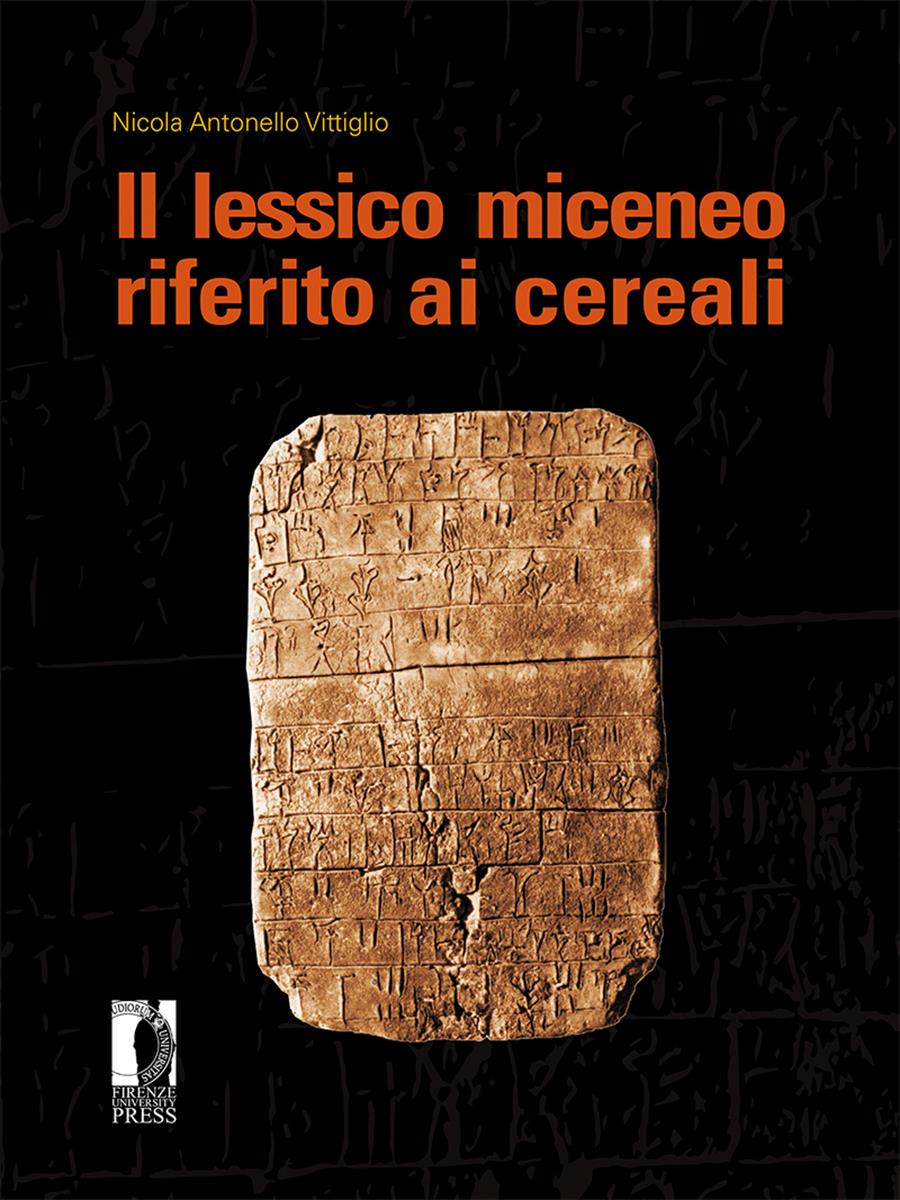+ More about the authors

-
Scientific board: 8 members, 6 research institutions, 3 nations
Authors: 6 authors, 7 editors
Books: 4 monographs, 7 edited books
-
© 2017 Author(s)
Published by Firenze University Press
This
book constitutes a study of the lexicon of cereals as witnessed by the
Mycenaean inscriptions. The study focuses both on the nouns used to
designate cereals, on their compounds and derivatives, and on the terms
with which they relate (adjectives, theonyms, toponyms, etc.). The
volume is divided into three chapters. The first chapter analyses the
six Mycenaean terms together with their derivatives and compounds -
phonetically transcribed - which designate cereals or include their
names: wheat, barley, wheat flour, barley flour, bakers (= those who
bake bread) together with others nouns belonging to the same semantic
field, such as seed. The second chapter focuses on three Mycenaean
logograms designating cereals: *120, *121 and *129, interpreted
respectively as wheat, barley and flour. The third chapter describes the
wide set of terms appearing contextually in the inscriptions in which
cereals are attested, and groups them according to their meaning: human
and divine recipients, toponyms, adjectives, other administrative terms,
etc. Finally, the conclusions present an overall assessment of the data
analysed in the previous chapters, that is an assessment affecting the
economic, political, social and religious sphere of the Mycenaean
civilisation.
Il presente libro costituisce uno studio del
lessico dei cereali testimoniato nelle iscrizioni micenee, sia dei
termini che li designano, dei loro composti e dei loro derivati, sia dei
termini con cui si relazionano (aggettivi, teonimi, toponimi, ecc.). Il
volume è suddiviso in tre capitoli. Il primo analizza i sei termini
micenei con i relativi derivati e composti, trascritti foneticamente,
che designano cereali o includono i loro nomi: grano, orzo, farina di
grano, farina di orzo, panettieri (= coloro che cuociono il pane)
insieme ad altri sostantivi appartenenti allo stesso campo semantico
come seme. Il secondo analizza tre logogrammi micenei che designano
cereali: *120, *121 e *129, interpretati rispettivamente come grano,
orzo e farina. Il terzo capitolo descrive il grande insieme dei termini
che appaiono contestualmente nelle iscrizioni in cui si registrano
cereali, raggruppandoli in base al loro significato: destinatari umani e
divini, toponimi, aggettivi,altri termini amministrativi, ecc. In
ultimo, le conclusioni presentano una valutazione di insieme dei dati
analizzati nei capitoli precedenti, valutazione che interessa le diverse
sfere: economica, politica, sociale e religiosa, della civiltà micenea.











 Stumble It!
Stumble It!

No comments:
Post a Comment